When ambient programming becomes the most coveted market for tech giants, AI Coding entrepreneurs may be forced to take sides.
Author: Xinxin
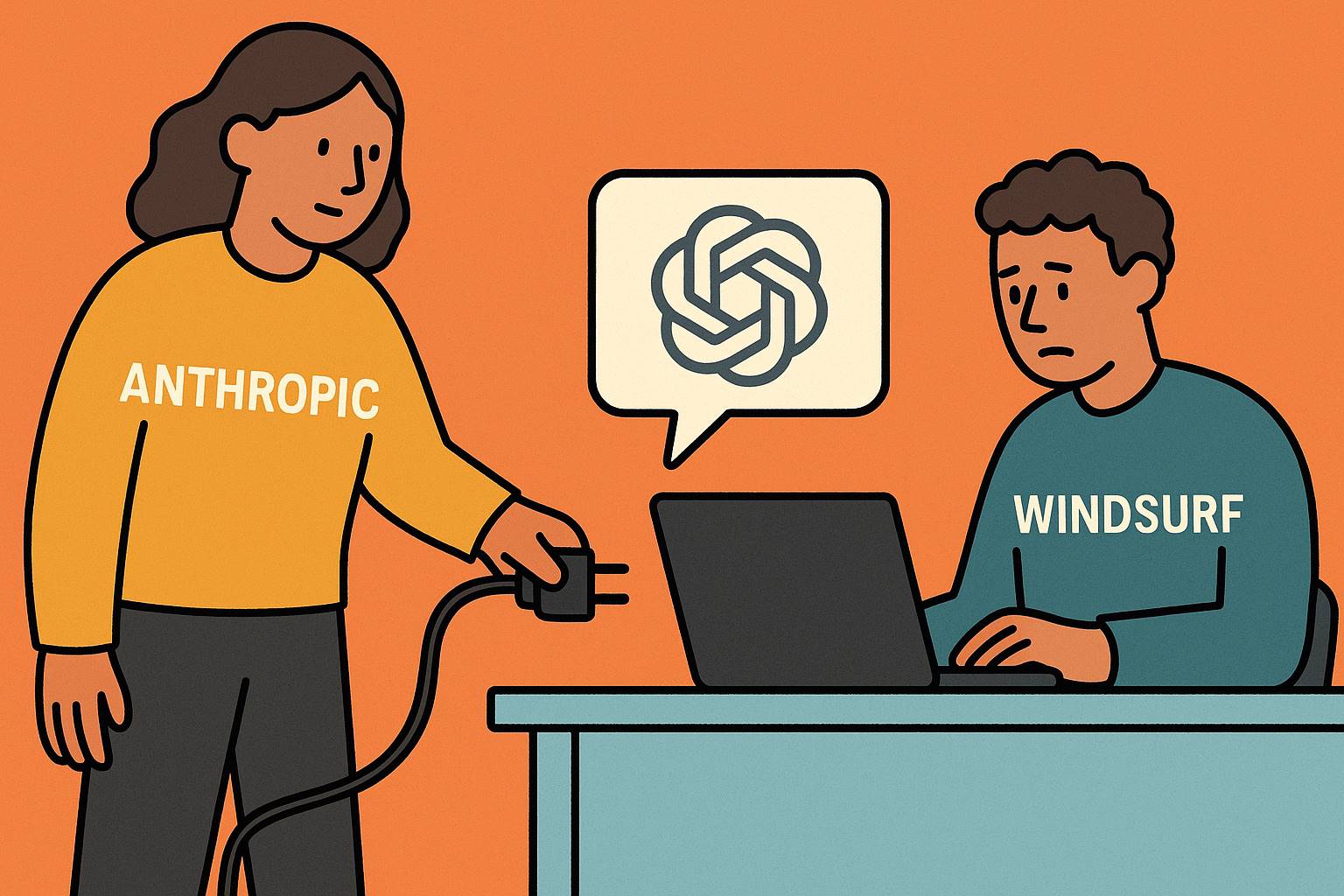
A major acquisition by OpenAI is stimulating the nerves of the entire AI Coding tools market.
In mid-April this year, it was reported that OpenAI would acquire the "multi-model support" AI programming platform Windsurf (formerly known as Codeium) for approximately $3 billion. (For details, scan the QR code in the image below to listen to the podcast on Geek Park 👇)
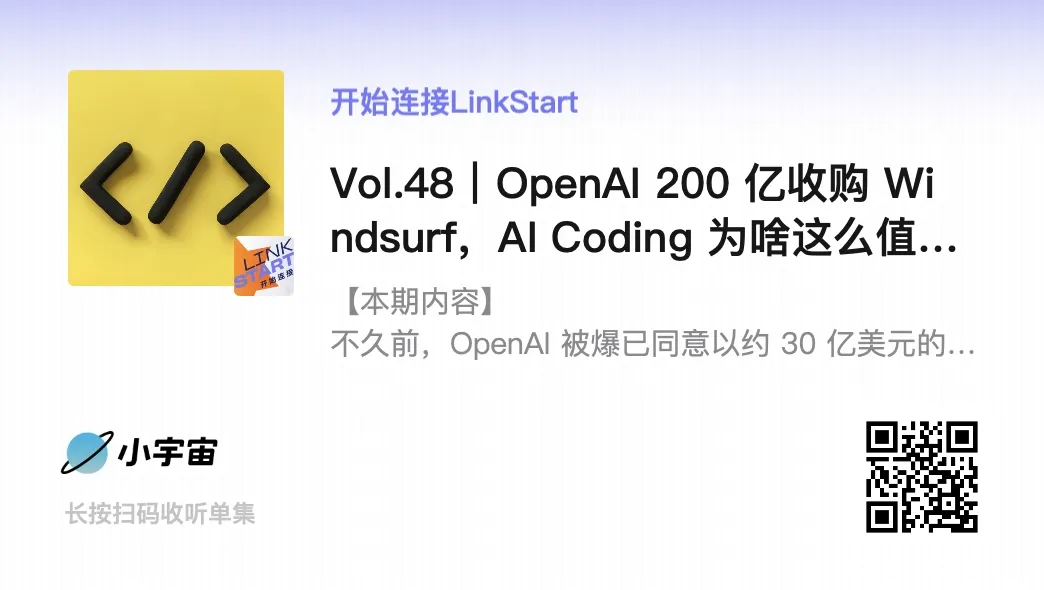
During the progress of the deal, Windsurf faced a "blow" from another AI giant, Anthropic: access to the Claude series models was restricted, and even on the day Claude 4 was released, Windsurf did not receive access rights.
On June 3, Windsurf CEO Varun Mohan publicly complained on X that Anthropic decided to cut off almost all access to Claude 3.x models, stating they "only received less than five days' notice."
An AI Coding company, before even receiving the acquisition funds, suddenly became a "sandwich cookie" in the game between AI giants, quickly moving towards factionalization.
Does Anthropic's "supply cut" for Windsurf mean that AI Coding has become a battleground for AI giants? And as the hottest entrepreneurial track, how should AI Coding entrepreneurs choose their next steps?
01 Windsurf: From Neutrality to Taking Sides
Windsurf was not originally an AI programming company but a GPU virtualization startup founded in 2021. It only transitioned to an "AI programming IDE" in 2022, leveraging large models to turn natural language prompts into code, understand large codebases, and emphasize the experience of "freely switching models."
In other words, the platform initially maintained neutrality, allowing users to choose their models. Whether users preferred Claude, found GPT stable, or wanted to use Gemini, Deepseek, Grok, etc., Windsurf supported them all.
Its core product is an IDE that supports natural language programming, which not only supports multiple models but also includes self-developed Cascade Agent, Supercomplete completion system, and real-time preview features. From a VS Code plugin to an independent platform, Windsurf is a model of "AI-native coding."
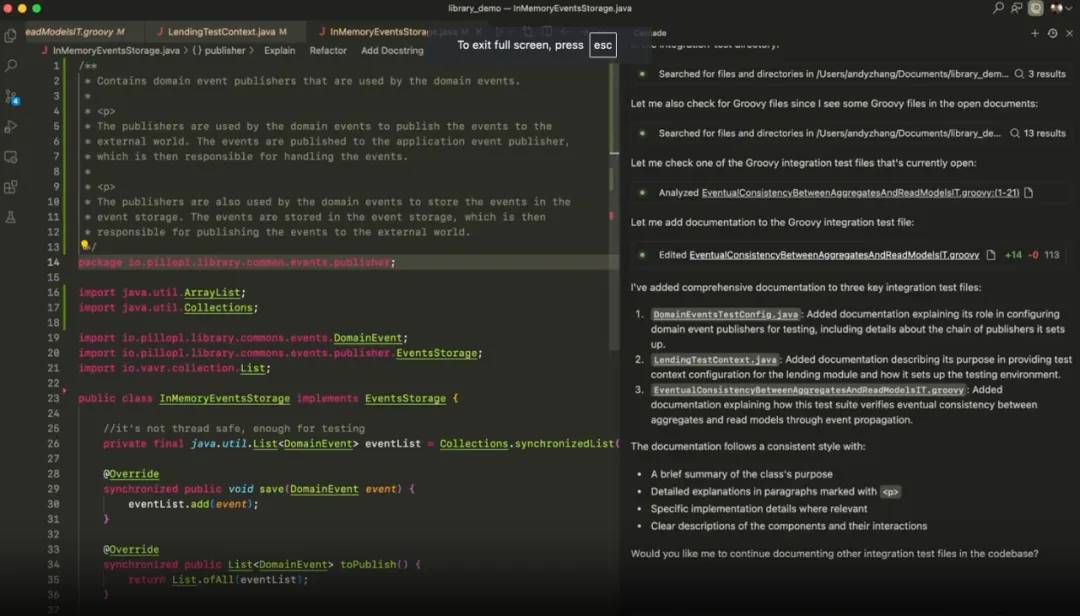
Windsurf's AI Coding agent Cascade | Image source: Windsurf
This "Vibe coding" model attracted a large number of programmers and startups, even penetrating the enterprise user market. By early 2025, Windsurf claimed its annual recurring revenue (ARR) had surpassed $100 million, with daily active users reaching hundreds of thousands. Even though the data lagged behind more popular tools like Cursor and GitHub Copilot, Windsurf remained one of the strong players in the AI programming field.
Originally, neutrality was neutrality, but after being acquired by OpenAI, its "model selection" label became awkward. In the eyes of some developers, this could mean Windsurf has fallen from being a model-neutral entity to becoming "the exclusive entry point for GPT," with its independence becoming uncertain.
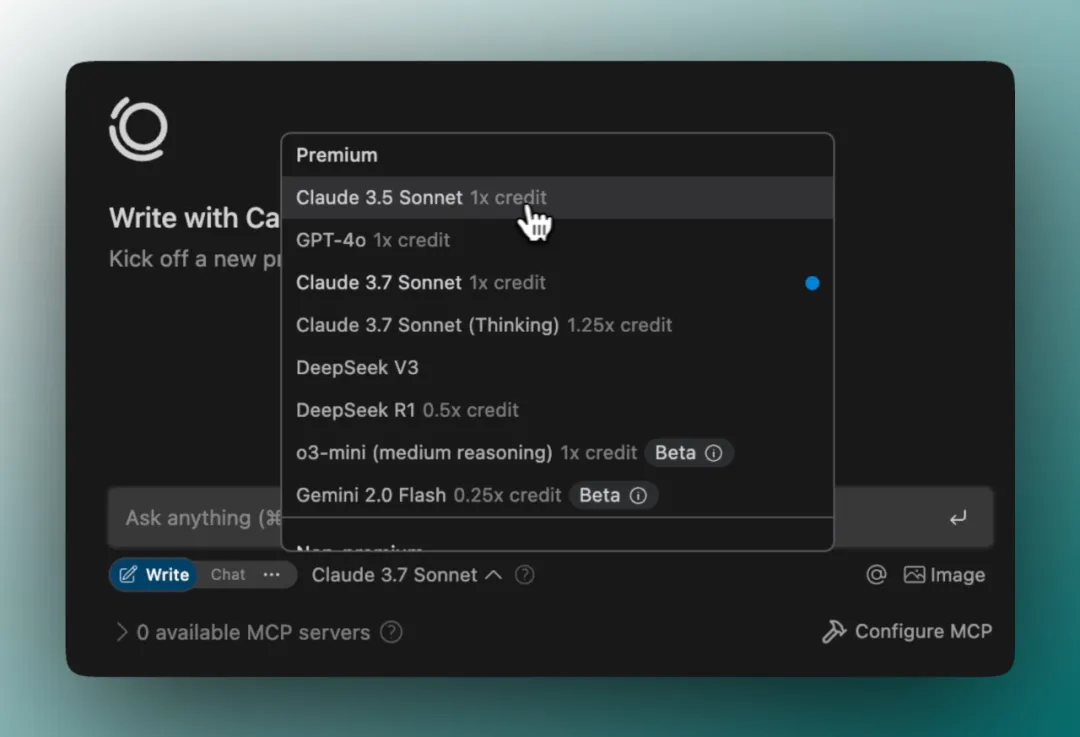
Windsurf originally could choose from various models, including Claude | Image source: Windsurf
OpenAI has not clearly stated whether it will restrict model selection rights, but its competitor Anthropic's response has already hinted at this: completely cutting off Windsurf's first-party access to the Claude 3.x series, and no longer providing native support for Claude 4. If users still want to use Claude, they can only access it through their own API keys, a cumbersome process that incurs higher costs and lower stability.
From Windsurf user feedback, some developers have already expressed anger and confusion. Some have switched tools, such as moving to Cursor, just to continue using Claude 4.
Windsurf CEO Varun Mohan publicly complained on X, "Due to Anthropic's short notice, we may encounter some availability issues with Claude 3.x models in the short term." "We have made it very clear to Anthropic that this is not what we wanted—we intended to pay them for full capacity. We are disappointed with this decision and the short notice."
He also mentioned other vendors, stating that to ensure sufficient short-term resource supply, they have increased capacity with other inference service providers, "Gemini 2.5 Pro (currently of very high quality on Windsurf, enjoying a new 0.75x promotional price), GPT 4.1, and more models have not been affected. We look forward to continuing to cooperate with all model providers."
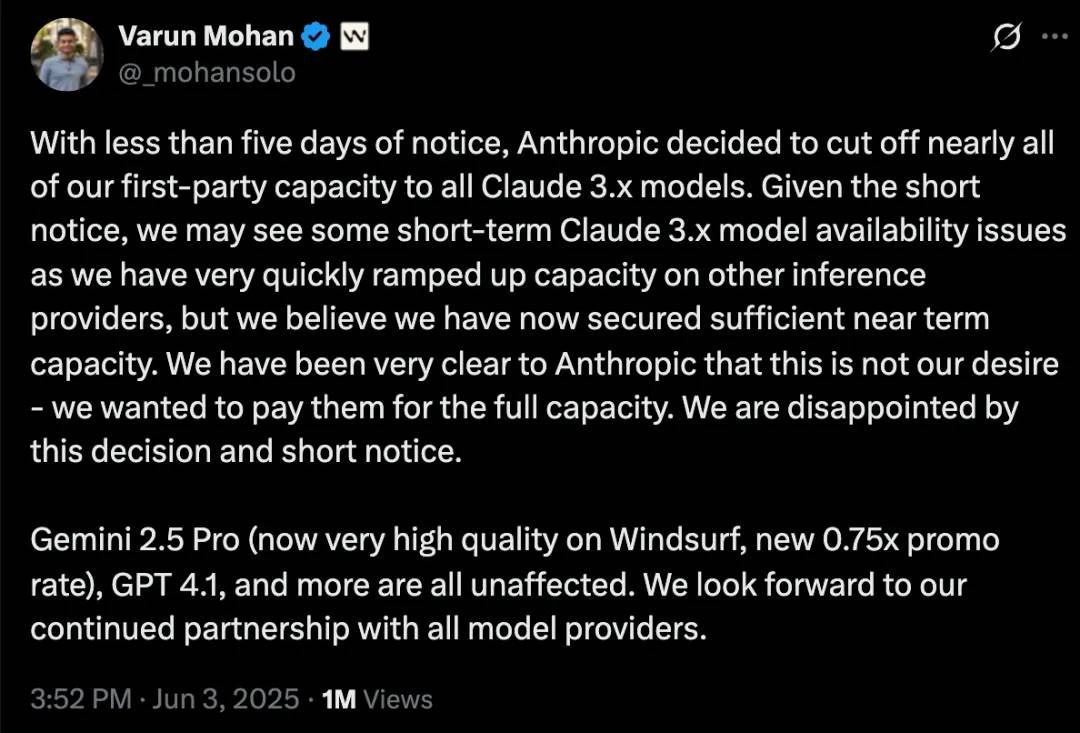
Windsurf CEO complains about Anthropic cutting off Claude models | Image source: X
In an official statement released by the company, Windsurf specifically stated, "We are concerned that Anthropic's actions will harm the interests of the entire industry, not just Windsurf's interests."
From being a beneficiary of large models to being forced to choose sides, Windsurf may not have anticipated that Anthropic's "supply cut" would come so swiftly and directly.
02 The "Proxy War" of AI Coding
Anthropic's action to cut off Windsurf's model access is, of course, seen as a move against OpenAI.
Various players in the AI programming field, whether it's Cursor from Anysphere, Devin from Cognition, or GitHub Copilot, can all use Claude. This also shows that it's not that Claude is unwilling to open up; it's just that it doesn't want to open up to its "biggest rival."
In response to the supply cut incident, Anthropic's public relations response is to prioritize resource allocation to "sustainable" partners, of course, without directly mentioning OpenAI, but the industry generally interprets it as a statement of factional alignment. Anthropic likely does not want the data from Windsurf users using Claude to be sent directly to OpenAI.
When Anthropic founders Dario Amodei and Daniela Amodei left OpenAI, their public statement was dissatisfaction with OpenAI's development direction; both had previously been responsible for OpenAI's safety research.
Moreover, Anthropic is backed by billions of dollars in investments from Google and Amazon; while OpenAI is deeply tied to Microsoft and controls GitHub Copilot. Each party wants to compete for developer entry by supporting tools and controlling models.
It is also worth mentioning that as large model programming capabilities enhance, Vibe Coding is becoming increasingly popular. Anthropic is not only looking to distribute its large models to various AI wrapper companies but is also increasingly looking to "self-operate."
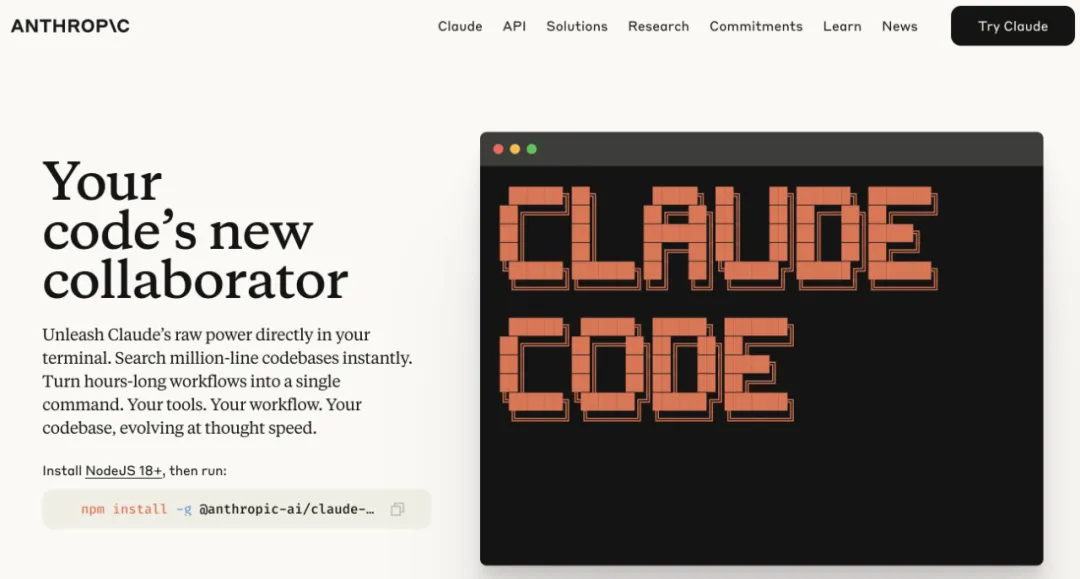
Anthropic launches Claude Code | Image source: Anthropic
In the first half of this year, Anthropic has begun to shift the usage scenarios of the Claude model to its own products—such as Claude Code, which was just released in February, and the "Code with Claude" conference held in May, which focused on its own tools.
After all, Anthropic's current flagship is still the programming capabilities of the Claude model, which is a competitive advantage against other large model vendors.
And now, with Windsurf being acquired by OpenAI, clearly taking sides, it naturally became the first to be "blacklisted."
Windsurf's "closeness" to OpenAI became public in April this year. Windsurf CEO Varun Mohan participated in the live broadcast of the GPT-4.1 model release. When OpenAI launched new programming products, he even praised them on social media, calling them "very cool," and stated, "Those who ignore this are not aware of the power of exponential curves and do not understand how significant this technology will advance."
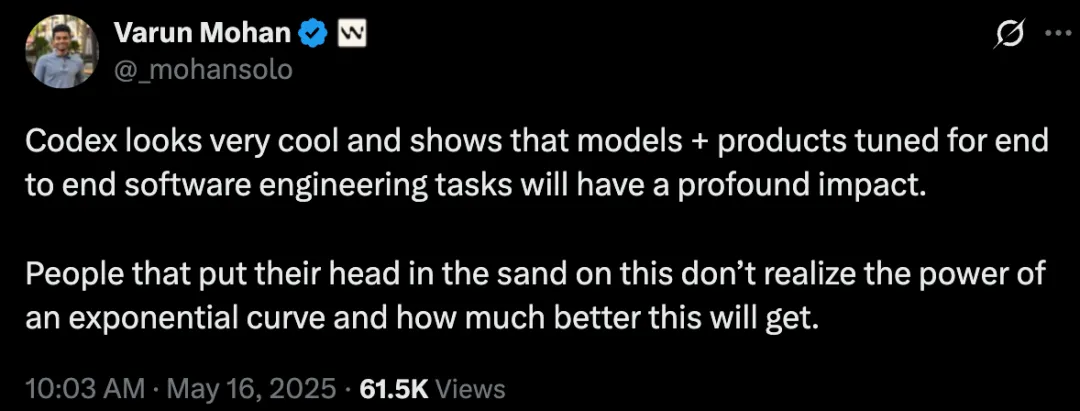
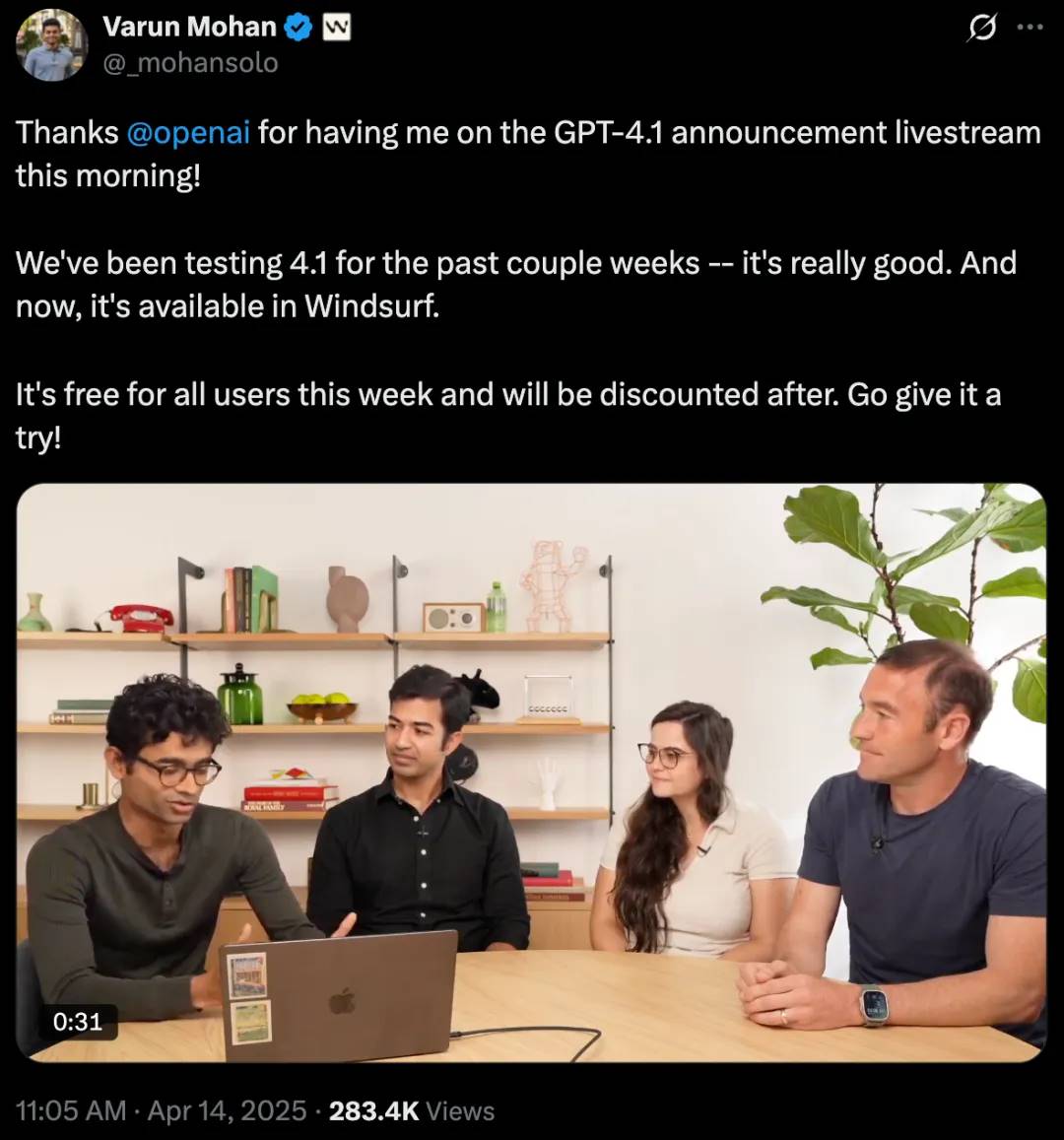
Windsurf CEO (left) interacts with OpenAI products and teams | Image source: X
On OpenAI's side, they have already realized that the pure large model service model itself may not be sustainable, and they have been active at the application layer, with AI programming becoming a key focus, as this field is a "traffic entry" for model distribution competition.
This year, their actions include integrating the AI programming agent "Codex" into ChatGPT Plus and open-sourcing the local programming agent "Codex CLI." Acquiring Windsurf may enhance OpenAI's capabilities in developer tools, especially by bringing Windsurf's mature user base into the OpenAI ecosystem, while competing for territory and controlling, weakening competitors' large model distribution channels.
However, regardless of what OpenAI plans to do with Windsurf, whether they considered Anthropic's reaction, when Anthropic's Claude model programming capabilities are still strong, if users turn to other tools as a result, Windsurf's own interests will certainly be affected.
For the entire industry, if models are bound to platforms, developers may worry that this is a signal of the AI programming market moving towards "platformization and closure."
For example, one might wonder if future development tools will also be as fragmented as smartphone operating systems—either iOS or Android; either GPT or Claude.
Windsurf's supply cut by Anthropic is by no means an accidental business decision but the first shot in the battle for dominance among AI giants.
免责声明:本文章仅代表作者个人观点,不代表本平台的立场和观点。本文章仅供信息分享,不构成对任何人的任何投资建议。用户与作者之间的任何争议,与本平台无关。如网页中刊载的文章或图片涉及侵权,请提供相关的权利证明和身份证明发送邮件到support@aicoin.com,本平台相关工作人员将会进行核查。




